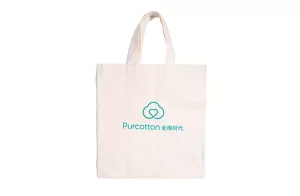As a trusted non-woven bags manufacturer, we at Winner Nonwovens often receive questions about the environmental impact of non-woven fabric shopping bags. Many people want to know whether these bags are biodegradable and how they fit into sustainable practices. In this article, we explore the materials used, the biodegradability factors, and how these bags can contribute to eco-friendly choices.
What Are Non Woven Bags Made Of
Non-woven fabric shopping bags are primarily made from polypropylene, a type of plastic. Unlike traditional woven fabrics, non-woven materials are bonded together through heat or chemical processes rather than being stitched. This construction makes the bags durable, lightweight, and resistant to tearing. While these properties make them excellent for repeated use, they also influence the biodegradability of the bags.
Factors Affecting Biodegradability
The biodegradability of non-woven bags depends on several factors. Polypropylene is not naturally biodegradable, meaning it does not easily decompose in soil or water. However, non-woven bags can be produced using biodegradable or compostable materials. For example, some non-woven fabrics are enhanced with additives that promote breakdown under certain conditions, such as industrial composting facilities. Environmental exposure, such as sunlight, moisture, and microbial activity, also affects the rate at which these bags decompose.
Benefits of Reusable Non Woven Fabric Shopping Bags
Even if non-woven bags are not fully biodegradable, their reuse can significantly reduce environmental impact. By choosing durable non-woven fabric shopping bags, consumers can minimize the need for single-use plastic bags. Using the same bag multiple times decreases plastic waste and conserves resources. At Winner Nonwovens, we focus on producing bags that balance strength and sustainability, offering a practical solution for everyday shopping needs.
Responsible Disposal and Recycling
Proper disposal is key to managing the environmental footprint of non-woven bags. While standard polypropylene non-woven bags may not break down naturally, they can often be recycled where facilities exist. Some communities accept non-woven fabric shopping bags in plastic recycling programs. Alternatively, repurposing the bags for storage, carrying items, or donation helps extend their life and reduces waste. Awareness of disposal options ensures that the benefits of using reusable bags are maximized.
Conclusion
Non woven bags provide a durable and practical option for daily shopping, but their biodegradability varies depending on the materials and additives used. At Winner Nonwovens, we are committed to helping businesses and consumers understand the environmental aspects of non-woven fabric shopping bags. By promoting reuse, responsible disposal, and awareness of material composition, we can all contribute to a more sustainable approach to shopping and packaging. Choosing non-woven bags thoughtfully ensures convenience does not come at the expense of the environment.











